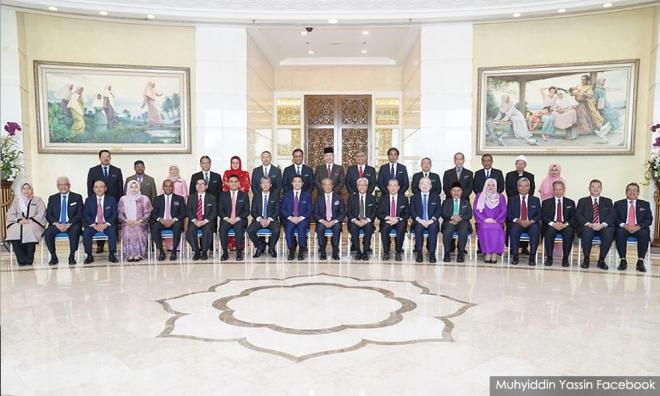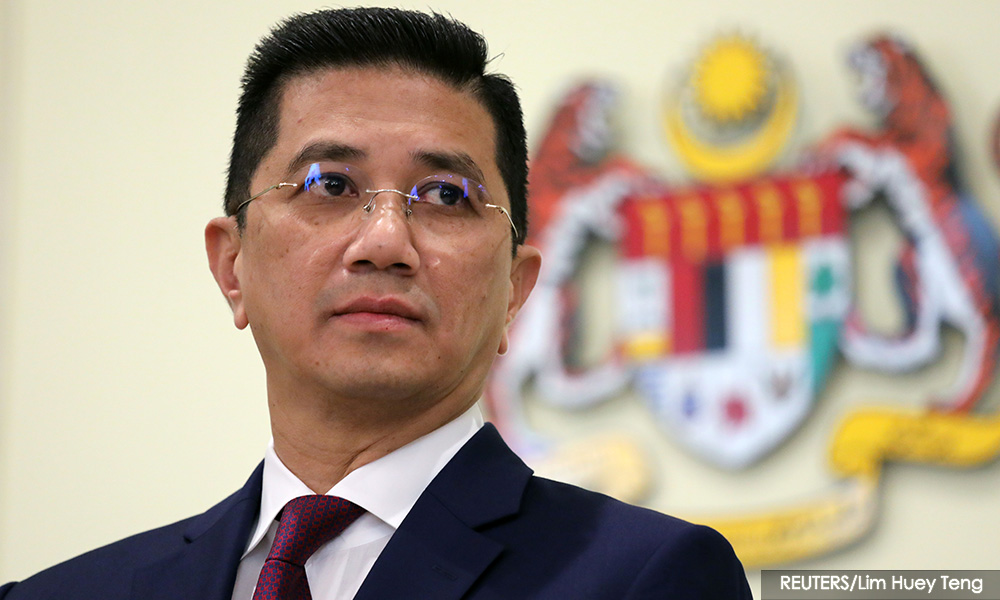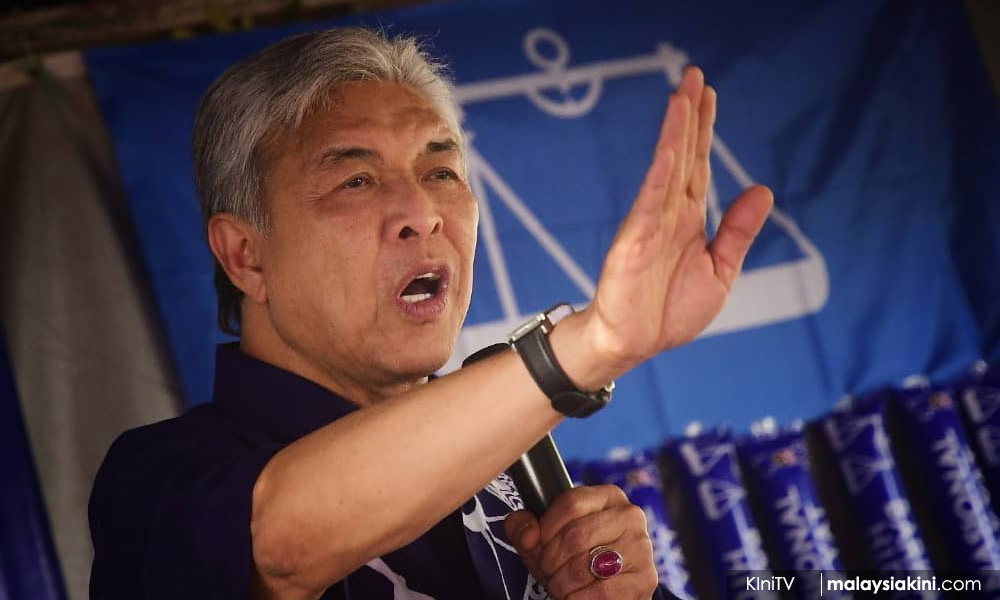
MP SPEAKS | It has been more than one month since Muhyiddin Yassin’s Perikatan National (PN) cabinet was sworn in, on March 10, 2020. Each political party within this uneasy coalition faces its unique political challenges in operating as part of the government.
However, no party faces bigger questions and challenges than Umno, as it grapples with the question of how it wants to work with Bersatu. This is Umno’s biggest dilemma within the PN government.
From the outset, let me be clear on this point: Umno leaders and members would much prefer to be in government together with Bersatu than to be in the opposition. In government, Umno would have access to the privileges of power, including access to positions in ministries, government agencies and GLCs.
However, there is nothing about the arrangement in the current PN government that Umno would find acceptable in the longer term. Most importantly, from a political strategy perspective, Umno leaders must realise that Bersatu’s ultimate goal is to replace Umno in the political arena as the dominant Malay party in government. This is the only way that Bersatu can survive, post-GE15, and Umno knows this.
After ruling the country for over 60 years, Umno is not used to playing the role of No 2 in government. And yet, this is the position they find themselves in today. With 41 elected Members of Parliament (MPs), they have more MPs than Bersatu, which only has 29 MPs (this includes the 10 MPs from PKR but does not include the five MPs who are supporting Dr Mahathir Mohamad.
[These five are the MPs for Langkawi (Mahathir himself), Muar (Syed Saddiq Syed Abdul Rahman), Jerlun (Mukhriz Mahathir), Kubang Pasu (Amiruddin Hamzah) and Simpang Renggam (Dr Maszlee Malik)].
And yet, Bersatu has more ministers (11 including the prime minister versus nine for Umno) and deputy ministers (15 versus eight for Umno) than Umno. Most of the key ministries are also being helmed by Bersatu MPs (Education, Home Affairs, Economy, Rural Development, Trade and Industry) or individuals aligned to the prime minister (Finance), with Umno having perhaps only one relatively ‘senior’ ministry, namely Defence. Two out of the four senior ministers are also from Bersatu, with Umno having only one senior minister.

The two senior ministers from Bersatu are Azmin Ali (Miti) and Senator Radzi Jidin (Education).
Umno is also facing the unprecedented experience of its president Ahmad Zahid Hamidi, deputy president Mohamad Hasan and two of its vice-presidents, Khaled Nordin and Mahadzir Khalid not having any government positions.
Defence Minister Ismail Sabri, who is one of the four Senior Ministers, is the only Umno vice-president in the cabinet. Furthermore, Umno MPs who are elected members of the Umno Supreme Council were not given any government positions. These MPs are Azalina Othman (Pengerang), Bung Moktar Radin (Kinabatang), Azeez Abdul Rahim (Baling), Noh Omar (Tanjong Karang) and Ahmad Maslan (Pontian).
However, Umno MPs who are not part of the top leadership of the party - Khairy Jamaluddin (Rembau), Hishamuddin Hussein (Sembrong), Halimah Sadique (Kota Tinggi) and Dr Adham Baba (Tenggara) - have been made Ministers. Umno Sabah was also completely left out of the cabinet in favour of Bersatu MPs who had left Umno and PKR.
Dr Ronald Kiandee (Beluran) and Abdul Rahim Bakeri (Kudat) left Umno to join Bersatu in February 2019. Ronald who was made the minister of agriculture, while Abdul Rahim was given the post of deputy minister of finance.
Jonathan Yassin (Ranau), who left PKR to join Bersatu, was made deputy minister of home affairs.

This situation is not one which must sit comfortably with Umno’s leadership. This is why the statement that was issued by Ahmad Zahid (above) on March 12, 2020, after an Umno Supreme Council meeting, put so many caveats in its support for Muhyiddin Yassin’s government.
There was no mention of any effort to strengthen Perikatan Nasional (PN) as a ruling coalition. Instead, the Umno president went out of his way to mention efforts to strengthen its partnership with PAS via Muafakat Nasional (MN) and to build up the strength of the Barisan Nasional (BN). Most importantly, the statement ended with a commitment to support the new government only until the next general election (GE15).
Any form of cooperation between Bersatu and Umno will likely cease once Parliament is dissolved, whenever this happens. It is hard to see how Umno and Bersatu can agree to any seat allocation formula. Umno and PAS will have their hands full in allocating the 100 parliamentary seats in Peninsular Malaysia, where both parties contested in GE14, under a Muafakat Nasional (MN) formula for GE15.
Umno, PAS and Bersatu competed in 47 Parliament seats in Peninsular Malaysia in GE14. These include seats such as Titiwangsa (where Bersatu’s Rina Harun, the current minister of women, family and community development defeated Johari Abdul Ghani, former minister of finance II and who is still Federal Territories Umno chairperson, and Ketereh, where current Federal Territories Minister Annuar Musa of Umno defeated current Education Minister Mohd Radzi Jidin of Bersatu, who was subsequently appointed as a senator.
The 47 parliamentary seats also include seats held by Umno MPs who subsequently joined Bersatu, post-GE14, such as Jeli (Mustapha Mohamed, currently a minister in the Prime Minister’s Department), Larut (current Home Minister Hamzah Zainuddin), Mersing (Minister of Rural Development Abdul Latiff Ahmad) and Masjid Tanah (Deputy Minister of Tourism Mas Ermieyati Samsudin).
It is hard to imagine Umno having many positive feelings about these defectors, much less negotiating with Bersatu to allow these incumbent Bersatu MPs to continue to contest in these seats with support from Umno and PAS.
In addition, the current cabinet also features former PKR MPs who joined Bersatu and whose seats were contested by both Umno and PAS in GE14, including Gombak (Azmin Ali), Indera Mahkota (Saifuddin Abdullah), Bandar Tun Razak (Kamaruddin Jaafar), Batu Pahat (Mohd Rashid Hasnon) and Nibong Tebal (Mansor Othman). Again, it is hard to see Umno or PAS giving way to these Bersatu MPs in GE15.
Umno has shown that it can defeat Bersatu even while it was in opposition at the state and federal levels, as in the Tanjung Piai and Kimanis parliamentary by-elections in Johor and Sabah respectively. With its grassroots support intact and with the continued nurturing of its relationship with PAS, there is no need for Umno (and PAS) to make concessions or to work with Bersatu in GE15.
Knowing this, what is Bersatu’s likely response in the short term (over the next year) and closer to GE15? And what is Umno’s likely strategy? This will be covered in Part 2.
ONG KIAN MING is the Member of Parliament for Bangi. - Mkini



ONG ni bodoh bangang.Orang DAP yang sibuk2 .MP kerajaan tak dilemma pun .
ReplyDeleteBaik jangan botak kepala la,simpan bagi tumbuh rambut siket..mungkin kepala bolih kembali pandai siket .